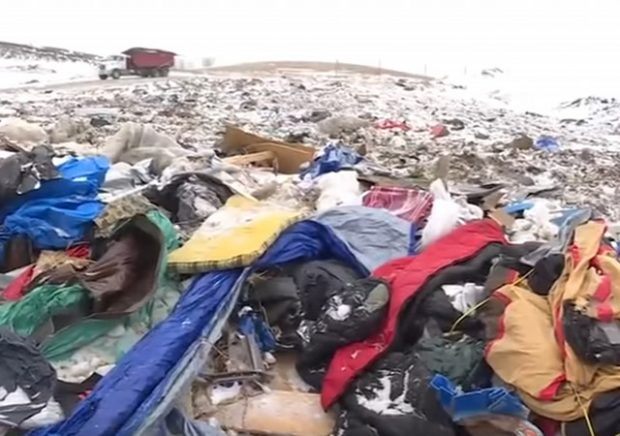Image: Garbage Left Behind by Dakota Pipeline Protestors
By Robert Hefner
As I wrote in We Need Leaders Who Prioritize People Over Molecules, climate alarmists “seem to have portrayed the problem [of climate change] in such an extremist way that they have convinced a growing army of climate warriors that terrorism is justified.”
Consider that Tracy Stone-Manning, Biden’s appointment to Director of the Bureau of Land Management, was confirmed by Congress despite proof that she was involved in eco-terrorism and lying under oath.
The New Yorker has continued to platform the terrorist, Andreas Malm, since September. Malm published a book titled, How to Blow Up a Pipeline, and “insists that the climate movement rethink its roots in nonviolence” in his podcast with David Remnick. Amazon continues to platform his book. When asked if he was planning an act of terrorism, Malm replied, “if I was planning things, I wouldn’t tell you.”
The metaphors were dramatic at COP26, as former President Barack Obama instructed the crowd to “vote like your life depends on it.” British Prime Minister, Boris Johnson, described it as a doomsday device strapped to humanity. United Nations Secretary-General Antonio Guterres warned that humans are “digging our own graves.” Another called on world leaders to commit concrete actions to “stop the extinction of our species.”
Can we genuinely blame people for believing the world is going to end, despite the unfounded rhetoric, when their leaders tell them their existence is at risk if they don’t respond in an equally extreme way? Given these dire warnings from respected leaders, that Glasgow is largely seen as a failure in climate circles stands only to compound the perceived desperation further. If climate extremists were not already to the point of embracing terrorism before Glasgow, they might now be squarely past their breaking point.
David Suzuki, the godfather of the Canadian environmental movement, seemed to echo Andres Malm as he warned, “pipelines will be blown up if leaders don’t act on climate change.” As Suzuki acknowledged, violence within the environmental movement is already happening.
Extinction Rebellion Canada defended Suzuki’s comments saying, in part, “not only will pipelines be blown up, but we can be certain that world leaders will be put on trial for treason or worse — be killed.”
The Premier of Alberta Canada tweeted, “This incitement to violence by David Suzuki is dangerous and should be condemned universally.” David Suzuki’s own foundation attempted to distance itself from the incendiary comments of its founder – Suzuki “speaks on his own behalf — not for the David Suzuki Foundation.” While Canadian leaders were swift to denounce Suzuki, American leaders have remained silent. It remains to be seen whether news companies like The New Yorker and technology giants like Amazon, Twitter, and Facebook will take action.
Amazon continues to sell How to Blow Up a Pipeline. Meanwhile, former President Donald Trump remains de-platformed despite the FBI’s apparent conclusions to the contrary, although the investigations are still ongoing. Are these companies capable of applying their terms of service uniformly?
Bill McKibben, the founder of 350.org, happens to be a contributor at The New Yorker where he writes a weekly newsletter on the environment called The Climate Crisis – the same paper that platforms Andres Malm’s clear-cut incitement. Will McKibben speak up against his employer and denounce Malm’s calls for violence? Will he condemn others, like Suzuki?
Any attack on our energy infrastructure would quickly lead to blackouts and, in turn, deaths. Winter Storm Uri was the most recent reminder of how critical this infrastructure is to society. What many might not appreciate, as we head into this winter, is that cold kills at a far higher rate than heat.
The increase in climate rhetoric seems to correlate to an increasing militancy within the climate community. The New Climate War, by Michael E. Mann, is yet another example of the militant language increasingly being adopted among these circles.
A petition to this effect has been started on change.org to denounce eco-terrorism. It is past time for climate leaders to tone down their rhetoric, unequivocally denounce all incitement to violence, and call on big tech to apply their terms of service uniformly. Otherwise, it is likely that they will have blood on their hands.
Robert Hefner is bridging the old and the new as a fifth-generation of a family that has influenced the energy policy of multiple presidential administrations dating back to the 1930s. Robert is an investor, writer, author, speaker, and consultant.
Originally published by RealClearEnergy. Republished with permission.


























